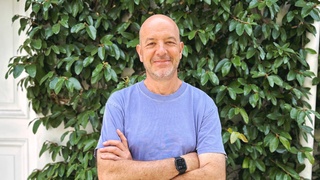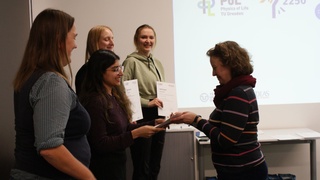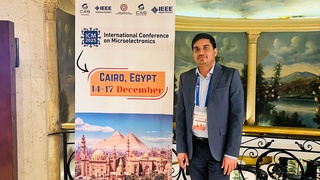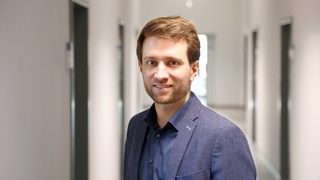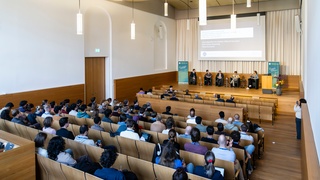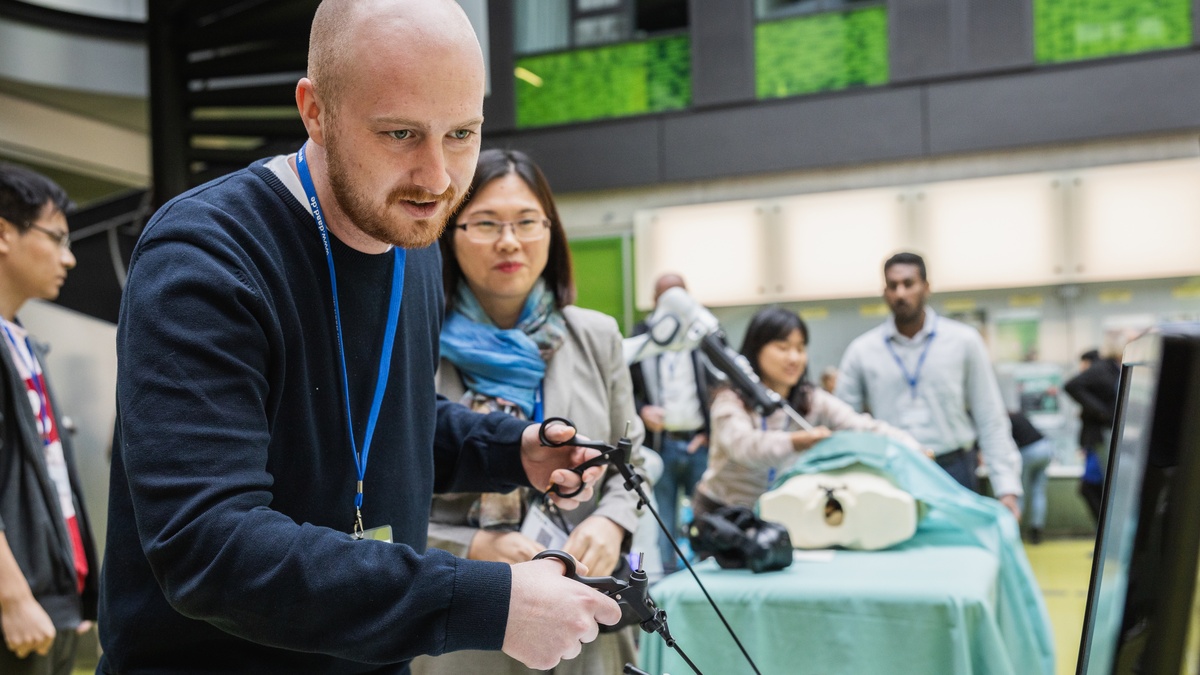 © DAAD/ PAUL KUCHEL PYKADO
© DAAD/ PAUL KUCHEL PYKADO
February 14, 2024
Research Perspectives: Max Beining and His Work in Jens Meiler's Research Group
As a biosystems engineer and computer scientist, Max Beining came into contact with the computer-aided development of active substances and the in-silico design of proteins during his master's thesis on stabilising the HIV surface protein. Subsequently, he focused his research on the modelling of proteins and their interaction. The Alexander von Humboldt Professor Jens Meiler supervises his doctorate.
Max Beining's research focuses on developing and establishing new methods for protein design with so-called non-canonical amino acids (NCAA). These do not occur in the genetic code of living organisms and, due to their immense diversity, they harbour great potential for the discovery of new active substances. To this end, he combines physical calculation with artificial intelligence. His research contributes to the Meiler Lab at Leipzig University.
Jens Meiler is a recognised expert in the fields of bioinformatics, structural biology and chemistry. He conducted research at the University of Washington under the renowned biochemist David Baker, where he was involved in the development of Rosetta, one of the leading protein modelling software. Jens Meilers` research group is located at the Faculty of Medicine at Leipzig University as well as at Vanderbilt University in Nashville (USA). It implements innovative computational approaches for drug discovery, investigates and models protein-protein interactions, and realises high-throughput ligand docking experiments, which enable the rapid prediction of possible binding between molecules and proteins. For drug design, the group uses both the established physics- and chemistry-based software Rosetta as well as state-of-the-art deep learning systems such as Alphafold, ProteinMPNN, and RFDiffusion. The combination of in-silico methods with experimental methods helps to better understand the interaction of proteins with potential new active substances and biomolecules.

Jens Meiler's research group
Max Beining's research into incorporating non-canonical amino acids even more closely into the design and developing machine learning systems for them has led to several collaborations with other research groups. For Junior professor Christina Lamers at the Leipzig University, he is modelling cyclic peptides as inhibitors for a specific biomolecule to increase the survival rate of patients with certain types of tumours. In collaboration with Dr Bram Mylemans from the University of Bristol, new binders have been developed to improve the killing of specific tumour cells. The synthesis and laboratory testing for both collaborations is scheduled to take place in 2024. With junior professor Julia Westermayr, generative models are combined with the quantum mechanical calculation of energies in order to use them for the design with non-canonical amino acids. One of the important milestones in research with NCAA also concerns the implementation of protein design on the multiprocessor system SpiNNaker2, which is to be realised in cooperation with Dr Johannes Partzsch from the working group of Prof Christian Mayr. The entire working group also maintains numerous other cooperation projects with industrial partners, the Interdisciplinary Centre for Bioinformatics (IZBI), and many other research institutions in Dresden, Munich and Bayreuth.
Max Beining is a PhD candidate at SECAI and receives financial support as well as access to infrastructure and networks of international research partners. The highlight so far has been a research stay of several weeks in the USA to initiate new international collaborations. SECAI supports the establishment and expansion of these networks, for example through research visits, joint workshops and a comprehensive scholarship programme.
